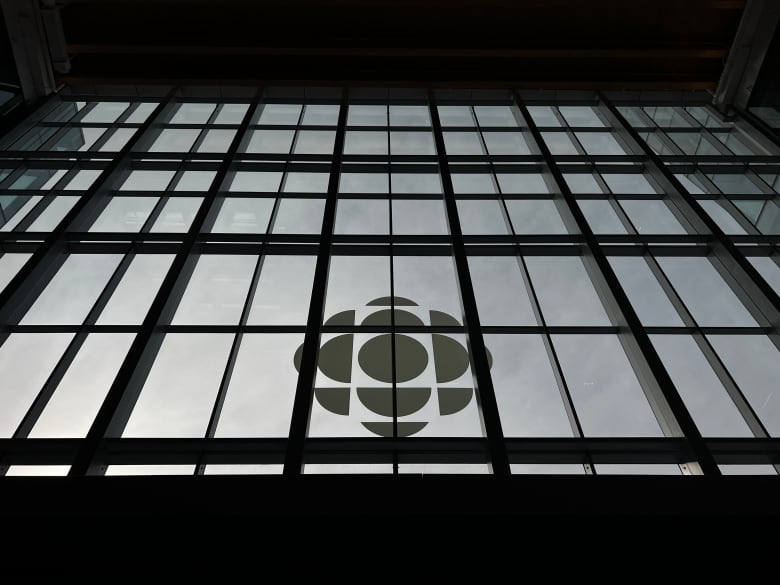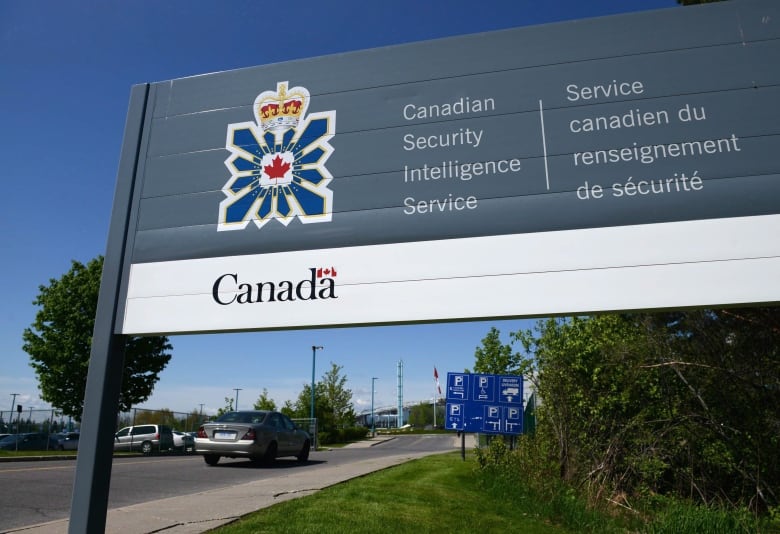News
Quebec tax on unvaccinated may be lawful but sets risky precedent – experts

|
|
A proposal by Quebec to tax unvaccinated people may be lawful but may also go against the spirit of Canada’s universal public health system, rights and medical experts said on Wednesday.
Tuesday’s surprise announcement by the province’s premier, Francois Legault, came with few details.
While his government would not say Wednesday how the tax would be levied, when or against whom, Canada’s Civil Liberties Association said it could violate Canadians’ fundamental rights, while health advocates expressed concern about its broader implications.
“I’ve not seen anything like this in Canada before. I’m worried about the precedent it would set,” said Danyaal Raza, a doctor with Unity Health in Toronto and former chair of Canadian Doctors for Medicare.
Quebec, Canada’s second-most populous province, is struggling with surging COVID-19 hospitalizations, and Legault noted that the province’s relatively small unvaccinated population was represented disproportionately among the hospitalized.
Facing a provincial election in October, his government’s response to the pandemic thus far has met with approval from 65% of Quebeckers surveyed, according to a Leger poll released this week.
But the province’s public health director stepped down earlier this week, prior to the tax plan announcement, citing an “erosion” of public trust in anti-pandemic measures.
Asked on Wednesday about the plan, Prime Minister Justin Trudeau said he “received that proposal with interest” but would not weigh in on it, saying he needed more details.
Canada’s public health system is underpinned by the Canada Health Act, meant to guarantee universality and accessibility, among other things. It precludes user fees for insured services.
Quebec’s tax could be framed as a “sin tax” similar to that placed on alcohol and cigarettes or as a tax on a health risk factor like private insurers charge, Raza said.
As such, it might not violate Canada’s Health Act but that did not mean it was a good idea, he said.
Cara Zwibel, acting general counsel for the Canadian Civil Liberties Association, said it might however violate Canada’s Charter of Rights and Freedoms if viewed as “a way of compelling people to get vaccinated”.
It was not clear if the tax’s goal is to convince more people to get vaccinated or to finance health care, she said.
McGill University biomedical ethicist Phoebe Friesen was concerned the logic of taxing unvaccinated people could be extrapolated to other behaviors seen as driving health spending – obesity, for example – but that are tied to marginalization.
“If you want to be consistent and logical, you should charge all sorts of people for their hospitalization if it’s based on behavior that they’re ‘responsible’ for,” she said “… And it’s incredibly tricky to figure out what that looks like.”
(Reporting by Anna Mehler Paperny; editing by John Stonestreet)
News
2024 federal budget's key takeaways: Housing and carbon rebates, students and sin taxes – CBC News
Finance Minister Chrystia Freeland today tabled a 400-page-plus budget her government is pitching as a balm for anxious millennials and Generation Z.
The budget proposes $52.9 billion in new spending over five years, including $8.5 billion in new spending for housing. To offset some of that new spending, Ottawa is pitching policy changes to bring in new revenue.
Here are some of the notable funding initiatives and legislative commitments in budget 2024.
Ottawa unloading unused offices to meet housing targets
One of the biggest pillars of the budget is its housing commitments. Before releasing the budget, the government laid out what it’s calling Canada’s Housing Plan — a pledge to “unlock” nearly 3.9 million homes by 2031.


The government says two million of those would be net new homes and it believes it can contribute to more than half of them.
It plans to do that by:
- Converting underused federal offices into homes. The budget promises $1.1 billion over ten years to transform 50 per cent of the federal office portfolio into housing.
- Building homes on Canada Post properties. The government says the 1,700-plus Canada Post offices across the country can be used to build new homes while maintaining postal services. The federal government says it’s assessing six Canada Post properties in Quebec, Alberta and British Columbia for development potential “as a start.”
- Rethinking National Defence properties. The government is promising to look at redeveloping properties and buildings on National Defence lands for military and civilian use.
- Building apartments. Ottawa is pledging a $15 billion top-up to the Apartment Construction Loan Program, which says it will build 30,000 new homes across Canada.
Taxing vacant land?
As part of its push on housing, the federal government also says it’s looking at vacant land that could be used to build homes.
It’s not yet committing to new measures but the budget says the government will consider introducing a new tax on residentially zoned vacant land.
The government said it plans to launch consultations on the measure later this year.
Help for students
There’s also something in the budget for students hunting for housing.


The government says it will update the formula used by the Canada Student Financial Assistance Program to calculate housing costs when determining financial need, to better reflect the cost of housing in the current climate.
The government estimates this could deliver more aid for rent to approximately 79,000 students each year, at an estimated cost of $154.6 million over five years.
The government is also promising to extend increased student grants and interest-free loans, at an estimated total cost of $1.1 billion this year.
Increase in taxes on capital gains
To help cover some of its multi-billion dollar commitments, the government is proposing a tax hike on capital gains — the profit individuals make when assets like stocks and second properties are sold.
The government is proposing an increase in the taxable portion of capital gains, up from the current 50 per cent to two thirds for annual capital gains over $250,000.
Finance Minister and Deputy Prime Minister Chrystia Freeland said this year’s federal budget will pave the way for Canada to build more homes at a pace not seen since the Second World War. The new investment and changes to funding models will also cut through red tape and break down zoning barriers for people who want to build homes faster, she said
Freeland said the change would impact the wealthiest 0.1 per cent.
There’s still some protection for small businesses. There’s been a lifetime capital gains exemption which allows Canadians to exempt up to $1,016,836 in capital gains tax-free on the sale of small business shares and farming and fishing property. This June the tax-free limit will be increased to $1.25 million and will continue to be indexed to inflation thereafter, according to the budget.
The federal government estimates this could bring in more than $19 billion over five years, although some analysts are not convinced.
Disability benefit amounts to $200 per month
Parliament last year passed the Canada Disability Benefit Act, which promised to send a direct benefit to low-income, working-age people with disabilities.
Budget 2024 proposes funding of $6.1 billion over six years, beginning this fiscal year, and $1.4 billion per year ongoing, for a new Canada Disability Benefit.
Advocates had been hoping for something along the lines of $1,000 per month per person. They’ll be disappointed.
According to the budget document, the maximum benefit will amount to $2,400 per year for low income individuals with disabilities between the ages of 18 and 64 — about $200 a month.
The government said it plans for the Canada Disability Benefit Act to come into force in June 2024 and for payments to start in July 2025.
Carbon rebate for small businesses coming
The federal government has heard an earful from small business advocates who accuse it of reneging on a promise to return a portion of carbon pricing revenues to small businesses to mitigate the tax’s economic costs.
The budget proposes to return fuel charge proceeds from 2019-20 through 2023-24 to an estimated 600,000 businesses with 499 or fewer employees through a new refundable tax credit.
The government said this would deliver $2.5 billion directly to Canada’s small- and medium-sized businesses.
Darts and vape pods will cost more
Pitching it as a measure to cut the number of people smoking and vaping, the Liberals are promising to raise revenues on tobacco and smoking products.
- Just Asking wants to know: What questions do you have about quitting smoking or vaping? Do you think sin taxes will encourage smoking cessation? Fill out the details on this form and send us your questions ahead of our show on April 20.
Starting Wednesday, the total tobacco excise duty will be $5.49 per carton. The government estimates this could increase federal revenue by $1.36 billion over five years starting in 2024-25.


The budget also proposes to increase the vaping excise duty rates by 12 per cent effective July 1. That means an increase of 12 to 24 cents per pod, depending on where you live.
Ottawa hopes this increase in sin taxes will bring in $310 million over five years, starting in 2024-25.
More money for CBC
Heritage Minister Pascale St-Onge has mused about redefining the role of the public broadcaster before the next federal election. But before that happens, CBC/Radio-Canada is getting a top-up this year.


The budget promises $42 million more in 2024-25 for CBC/Radio-Canada for “news and entertainment programming.” CBC/Radio-Canada received about $1.3 billion in total federal funding last year.
The government says it’s doing this to ensure that Canadians across the country, including rural, remote, Indigenous and minority language communities, have access to independent journalism and entertainment.
Last year, the CBC announced a financial shortfall, cut 141 employees and eliminated 205 vacant positions. In a statement issued Tuesday, CBC spokesperson Leon Mar said the new funding means the corporation can balance its budget “without significant additional reductions this year.”
Boost for Canada’s spy agency


As the government takes heat over how it has handled the threat of foreign election interference, it’s promising more money to bolster its spy service.
The Canadian Security Intelligence Service is in line to receive $655.7 million over eight years, starting this fiscal year, to enhance its intelligence capabilities and its presence in Toronto.
The budget also promises to guarantee up to $5 billion in loans for Indigenous communities to participate in natural resource development and energy projects in their territories.
These loans would be provided by financial institutions or other lenders and guaranteed by the federal government, meaning Indigenous borrowers who opt in could benefit from lower interest rates, the budget says.
News
Canada's 2024 budget announces 'halal mortgages'. Here's what to know – National Post
Article content
The 2024 federal budget says the Liberal government plans to introduce “halal mortgages” as a way to increase access to home ownership.
Here’s what “halal mortgage” means and what that effort might look like:
Article content
What does Canada’s 2024 budget say?
The plan mentions the creation of “alternative financing products, including halal mortgages” as a means to “enable Muslim Canadians, and other diverse communities, to further participate in the housing market.”
Article content
Ottawa is “exploring” measures that could change “the tax treatment of these products” or provide a “new regulatory sandbox for financial service providers,” it says.
Recommended from Editorial
The government began consultations in March 2024 with financial services providers and “diverse communities” as it sets out to expand mortgage policies to include alternative financing, the budget adds. The Liberal government says it will make announcement detailing what such a plan would look like this the fall.
Why are regular mortgages not considered halal?
Islamic law, or Sharia, prohibits Muslims from charging or receiving interest because they are seen as exploitative and immoral. Instead of giving loans, Islamic banks use different payment structures to avoid charging interest.
What are halal mortgages?
Sharia-compliant mortgages include payment structures that take interest out of the equation. There are three common types of halal mortgages: ijara, Musharaka, and Murabaha.
Article content
Ijara is a rent-to-own model in which a bank buys the asset and leases it back out to the customer over a set period. The payments go toward both the capital and provide a profit for the financial institution.
Musharaka, a form of partnership with the financier, involves both parties owning the property until the equity is gradually transferred and the partnership dissolves.
Murabaha is a credit system in which the ownership is immediately sold to the customer, with profits included in the final offer. The buyer’s credit history, deposit and terms of the agreement are factored in.
Because these structures are considered more risky, they are often more expensive than a traditional interest loan. Canada’s big banks do not currently provide halal mortgages, which the Liberal government hopes to change. According to Canadian Press, lack of halal financial options have left many Muslims waiting for smaller firms to allow them to make investments and buy homes.
Our website is the place for the latest breaking news, exclusive scoops, longreads and provocative commentary. Please bookmark nationalpost.com and sign up for our daily newsletter, Posted, here.
Share this article in your social network
News
Freeland's new federal budget hikes taxes on the rich to cover billions in new spending – CBC.ca
HIGHLIGHTS:
- Ottawa to spend $52.9 billion more than planned over the next five years.
- Finance Minister Chrystia Freeland projects Ottawa will post a $40 billion deficit this fiscal year.
- The budget includes $8.5 billion in new spending for housing.
- Other major budget items include a $6 billion Canada Disability Benefit, a $1 billion national school food program and a $500-million fund for youth mental health.
- Freeland will hike capital gain taxes paid by the rich and corporations to collect an estimated $19 billion in new revenue.
- The cost to service the growing national debt has increased substantially — it’s now about $2 billion more than it was projected to be just a few months ago.
- The government will spend more on servicing its debt than on health care this year.
Finance Minister Chrystia Freeland’s fourth budget delivers a big-ticket housing program for millennials and Generation Z voters — a multi-billion dollar commitment to be paid for in part with a tax hike on the rich and corporate Canada.
Freeland’s document calls for about $52.9 billion in new spending over the next five years — a significant jump over what Ottawa had said it would spend in the fall economic statement released just a few months ago.
To offset some of that new spending, Freeland is pitching policy changes the government says will generate roughly $21.9 billion in new revenue. That money is to come in part from higher capital gains taxes and a hike to excise taxes on cigarettes and vaping products.
“We are making Canada’s tax system more fair by ensuring that the very wealthiest pay their fair share,” Freeland said Tuesday after tabling her budget in Parliament.
“We are doing this because a fair chance to build a good, middle class life — to do as well as your parents, and grandparents, or better — has always been the promise of Canada.”
The result is a projected budget deficit of about $40 billion in the 2024-25 fiscal year — roughly what Freeland had predicted.
While the government is spending more overall, it says that better-than-expected economic growth and higher taxes will keep the deficit under control.
The Liberal government’s preferred “fiscal anchor” — the budget benchmark that guides its decisions — has long been to keep the net debt-to-GDP ratio on a declining trend, with debt levels closely tracking the overall size of the economy.
The budget document says the government must meet that benchmark in the years ahead to retain Canada’s triple-A credit rating.
Debt charges soar
Deficits eventually roll over into long-term debt. The cost to finance Canada’s growing debt pile — which has more than doubled over the last nine years to $1.4 trillion — is eating up more and more taxpayer dollars as the government is forced to refinance its borrowing at higher rates.
Public debt charges will cost $2 billion more this year than the forecast in November as the Bank of Canada keeps rates relatively high to tame inflation — which has shown signs of slowing down.
With interest rates at a 20-year high, Ottawa’s cost to borrow has spiked from $20.3 billion in 2020-21 to $54.1 billion in 2024-25.
That means Ottawa will spend more to service its debt than it will on health care this year — and the debt charges will march even higher in the years ahead.
Carrying the debt is expected to cost the federal treasury $64.3 billion in 2028-29 — more than double what Ottawa sends to the provinces through equalization payments.
“The interest rates are hurting the government just as much as they’re hurting us consumers,” said Sahir Khan, a former deputy parliamentary budget officer and the executive vice-president of the uOttawa Institute of Fiscal Studies and Democracy.
“It’s now a meaningful amount relative to other spending pressures and it’s going to start squeezing other programs. The government built up a stock of debt subject to prevailing interest rates and that creates a risk.”
Billions more for housing
The budget allocates $8.5 billion more to housing to help alleviate a crisis that has locked a generation of young people out of the dream of home ownership. The government maintains its housing measures will drive the creation of roughly four million more homes by 2031.
Finance Minister and Deputy Prime Minister Chrystia Freeland said this year’s federal budget will pave the way for Canada to build more homes at a pace not seen since the Second World War. The new investment and changes to funding models will also cut through red tape and break down zoning barriers for people who want to build homes faster, she said
Freeland has freed up money to send more cash to municipalities through the Housing Accelerator Fund, build more homes on underused public lands and at Canada Post outlets, cut cheques for new water and solid waste infrastructure in growing communities, offer tens of billions of dollars in loans to spur new rental construction and secondary suites, and help non-profits acquire existing rental homes and keep them affordable.
“We are moving with purpose to help build more homes, faster. We are making life cost less,” Freeland said. “Millennial and Gen Z Canadians, we want them to look forward to the future with a sense of anticipation, not angst.”


The government also has committed to maintaining the already well-subscribed tax-free savings account, extending mortgage amortization terms and increasing the RRSP withdrawal limit for some first-home buyers, among other measures.
The housing program is a “home run,” said Armine Yalnizyan, a progressive economist and the Atkinson Fellow on the Future of Workers.
Yalnizyan said Conservative Leader Pierre Poilievre’s early focus on housing hurt the Liberals’ standing among some millennial voters.
Now, the Liberals are trying to reclaim some of those votes with an ambitious program which, if it’s carried out as planned, will meaningfully increase the country’s housing supply, she said.
“It’s really an attempt to stop the Conservatives from eating their lunch,” she said.
A tax hike on the rich
As Ottawa moves to remake the housing landscape, roll out a national dental care program and launch pharmacare, Freeland’s budget includes a number of targeted tax hikes that it says will yield some $21.9 billion in new revenue over the next five years.
The biggest windfall will come from an increase to the capital gains inclusion rate.
Under the current regime, only 50 per cent of capital gains are taxable. If a taxpayer sells an asset like a cottage, an investment property, a stock or mutual fund for $100,000 more than they paid, they are taxed only on $50,000 of that profit.
With this new budget, the “inclusion rate” will increase from one-half to two-thirds on capital gains above $250,000 per year for individuals, and on all capital gains realized by corporations and trusts.
The move is likely to be seen by business-friendly groups as an attack on the people and businesses that create jobs.
Freeland said she anticipates some blowback.
“I know there will be many voices raised in protest. No one likes paying more tax, even — or perhaps particularly — those who can afford it the most,” she said.
“Tax policy is not only, or chiefly, the province of accountants or economists. It belongs to all of us because it is how we decide what kind of country we want to live in and what kind of country we want to build.”
The NDP — the government’s partner in the supply-and-confidence agreement — likely will welcome the change; party leader Jagmeet Singh has said the wealthy and big corporations should shoulder more of the country’s tax burden.
“We are asking the wealthiest Canadians to contribute a bit more, so that we can make investments to ensure a fair chance for every generation,” the budget document says. “Canada’s tax system can be more fair.”
The change will not apply to any capital gains from the sale of a primary residence. Investment income earned in an RRSP or TFSA, including capital gains, also will not be taxed.
According to government data, only 0.13 per cent of Canadians — people with an average income of about $1.4 million a year — are expected to pay more in personal income tax on their capital gains as a result of this change.
Jimmy Jean, an economist at Desjardins who tracks Ottawa’s spending, said the federal government’s goal of collecting about $19 billion from the capital gains measure may be difficult to achieve.
“The jury’s out on whether they can get that much,” Jean said.
“Targeting the income and wealth of the wealthy — it’s difficult because it’s more mobile, they can move it around. I’m skeptical.”
Other new revenue-generating measures in the budget include a promise to crack down on bankruptcy fraud and tackle “aggressive tax planning schemes.”
Beyond housing, there’s also a promise to top up the incentives for zero-emission vehicles, deliver a new carbon tax rebate for small businesses, stand up an $800-million energy efficiency retrofit program, increase student grants, create a $500-million fund for youth mental health, launch a $6 billion Canada Disability Benefit, fund a $1 billion national school food program and deliver a $900-million top-up to the Indigenous infrastructure program.
CBC/Radio-Canada will get a one-off $42 million budget boost for news and entertainment programming — a cash injection that will help the company avoid some of the previously announced layoffs.
VIA Rail Canada stands to gain about $400 million over the next few years to turn the dream of high-frequency rail in central Canada into a reality.
CBC News breaks down the biggest items in the new federal budget — and how the government is planning to pay for billions in new spending.
Poilievre blasts budget, Singh stays noncommittal
Poilievre pilloried the budget and said his party would vote against it.
Speaking in the House of Commons, the Conservative leader said the Liberal government has never presented a balanced budget in all the years it’s been in office and the promised $40 billion in new spending will drive inflation higher.
“This is the ninth deficit. The ninth deficit after the prime minister promised the budget would balance itself and what did he do with the money? Everything he spent it on has become more expensive,” Poilievre said.
“This is like a pyromaniac spraying gas on the inflationary fire that he lit. It is getting too hot and too expensive for Canadians and that’s why we need a carbon tax election to replace him with a common sense Conservative government.”
Responding to Tuesday’s budget by the federal Liberals, opposition Leader Pierre Poilievre says Conservatives will vote against the financial plan, and renewed his call for ‘a carbon tax election’ to replace Prime Minister Justin Trudeau.
Singh, meanwhile, said it’s too early to say if his party will support the budget.
While he praised some measures he said his party forced the government to include, such as dental care, pharmacare and a national school food program, Singh said he wants to meet with Trudeau to raise some other “concerns” before making a final decision.
Singh said he’s not onside with a plan to cut about 5,000 public servants through attrition — the federal bureaucracy has grown to about 357,247 workers under Trudeau — and he said there’s inadequate funding for Indigenous peoples.
NDP Leader Jagmeet Singh says while he is glad to see some measures in the 2024 budget like protections for renters and the national school food program, he believes the Liberals could have done more to bring grocery, internet and housing prices down.
If Singh and his NDP MPs withhold their votes, the minority government could lose the confidence of the House of Commons, tipping the country into an early election.
While the capital gains tax increase will cost the country’s big businesses billions more than what they pay now, Singh said “the Liberals ignored the opportunity to take on corporate greed.”
Singh said the companies he blames for inflation — grocery store chains, telecommunications companies and “housing and corporate landlords” — should have faced tax hikes.
Green Party Leader Elizabeth May said her caucus will vote against Freeland’s budget.
She said the government’s planned disability benefit, which amounts to about $200 a month for eligible Canadians, is too low.
May also said there’s not enough money earmarked for social housing — just more loans for developers to build more affordable homes.
“The budget falls far short of our hopes,” May said. “It’s not meeting the moment. We need dramatic, transformative changes to our society to be able to afford the things we need.”
-



 Tech20 hours ago
Tech20 hours agoiPhone 15 Pro Desperado Mafia model launched at over ₹6.5 lakh- All details about this luxury iPhone from Caviar – HT Tech
-



 Sports20 hours ago
Sports20 hours agoLululemon unveils Canada's official Olympic kit for the Paris games – National Post
-



 Science23 hours ago
Science23 hours agoAstronomers discover Milky Way's heaviest known black hole – Xinhua
-
News18 hours ago
Toronto airport gold heist: Police announce nine arrests – CP24
-
Media22 hours ago
NPR's liberal bias: Editor exposes media's lack of viewpoint diversity – USA TODAY
-



 Tech18 hours ago
Tech18 hours agoVenerable Video App Plex Emerges As FAST Favorite – Forbes
-



 Science24 hours ago
Science24 hours ago'Almost hit my son' – Space junk crashes through Florida home – BBC.com
-
Investment14 hours ago
Saudi Arabia Highlights Investment Initiatives in Tourism at International Hospitality Investment Forum











